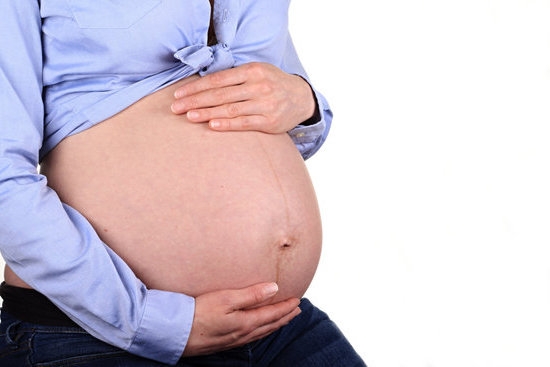Pregnancy is a crucial time for women to prioritize their nutrition, ensuring that they and their developing baby get all the necessary nutrients. One delicious and refreshing way to boost one’s nutritional intake during pregnancy is by enjoying watermelon.
With its rich array of vitamins and minerals, including vitamin C, vitamin A, and potassium, watermelon can be a valuable addition to a prenatal diet. In addition to its nutritional value, the high water content of watermelon makes it a great choice for staying hydrated during pregnancy.
Expectant mothers can benefit from understanding the specific ways in which watermelon can support a healthy pregnancy. From reducing swelling to providing relief from morning sickness, incorporating this juicy fruit into one’s diet can have numerous positive effects on maternal health. This article will delve into the nutritional benefits of watermelon, provide tips for integrating it into a well-rounded pregnancy diet, address potential safety concerns, and offer expert advice on selecting and storing the perfect watermelon.
As we explore the role of watermelon nutrition in pregnancy, it’s important to acknowledge the importance of consuming a variety of nutrient-dense foods while avoiding potential risks. By understanding the benefits and potential considerations associated with eating watermelon during pregnancy, expectant mothers can make informed decisions about including this fruit as part of their prenatal diet. Stay tuned as we uncover the many ways in which watermelon can contribute to a healthy and balanced pregnancy.
Nutritional Value of Watermelon
Watermelon is not only a delicious and refreshing fruit but also a highly nutritious option for pregnant women. Packed with essential vitamins and minerals, watermelon can be a valuable addition to a pregnancy diet. When it comes to watermelon nutrition and pregnancy, the fruit’s impressive nutrient profile offers several benefits for expectant mothers.
One of the key nutrients found in watermelon is vitamin C, which plays a crucial role in supporting the immune system and aiding in the absorption of iron. This is particularly important during pregnancy, as the body’s need for iron increases to support the growth and development of the baby.
Additionally, watermelon contains vitamin A, which is essential for healthy vision, skin, and immune function. Pregnant women can also benefit from watermelon’s potassium content, as this mineral helps regulate blood pressure and supports proper muscle and nerve function.
In addition to its valuable nutrient content, watermelon is also an excellent source of hydration for pregnant women. Staying adequately hydrated during pregnancy is vital for supporting the body’s increased blood volume, maintaining amniotic fluid levels, and preventing issues such as constipation and urinary tract infections. With its high water content, consuming watermelon can contribute to meeting these hydration needs while also providing a dose of essential vitamins and minerals.
| Nutrient | Benefit |
|---|---|
| Vitamin C | Supports the immune system and aids in iron absorption |
| Vitamin A | Essential for healthy vision, skin, and immune function |
| Potassium | Regulates blood pressure and supports muscle function |
Hydration During Pregnancy
During pregnancy, staying hydrated is essential for the health of both the mother and the baby. Dehydration can lead to a range of issues, including an increased risk of urinary tract infections and preterm labor. This makes it crucial for expectant mothers to consume an adequate amount of fluids daily. One delicious way to do this is by incorporating watermelon into the diet, as it has a high water content that can help meet hydration needs.
The high water content in watermelon makes it a great choice for staying hydrated during pregnancy. In addition to its hydrating properties, watermelon also contains essential nutrients that are beneficial for expectant mothers. These include vitamin C, which supports the immune system, and vitamin A, which is important for vision and fetal development. The potassium content in watermelon can also help maintain healthy blood pressure levels during pregnancy.
Incorporating watermelon into the pregnancy diet can be easy and enjoyable. Consider the following tips and ideas:
- Enjoying a slice of chilled watermelon as a refreshing snack
- Adding cubed watermelon to salads for a sweet and hydrating twist
- Blending watermelon with other fruits and yogurt to make a hydrating smoothie
It’s important to note that while consuming watermelon can be beneficial during pregnancy, it’s crucial to consult with a healthcare provider for personalized nutrition recommendations based on individual health needs. With guidance from a healthcare professional, expectant mothers can enjoy the nutritional benefits of watermelon as part of a well-rounded pregnancy diet.
Pregnancy-Related Health Benefits of Watermelon
During pregnancy, it’s essential for women to focus on consuming a nutrient-dense diet that supports both their health and the development of their baby. One fruit that can be particularly beneficial during this time is watermelon. Packed with essential vitamins and minerals, watermelon can offer several pregnancy-related health benefits.
First and foremost, watermelon is an excellent source of hydration due to its high water content. Staying properly hydrated is crucial during pregnancy to support the increased blood volume, amniotic fluid, and overall bodily functions. Dehydration can lead to complications such as preterm labor and low amniotic fluid levels, making it important for pregnant women to prioritize their fluid intake. Incorporating watermelon into their diet can help them meet their daily fluid needs while also providing essential nutrients.
Additionally, watermelon can aid in reducing swelling during pregnancy. Swelling, or edema, is a common symptom experienced by pregnant women due to increased fluid retention and pressure on the blood vessels from the growing uterus. The combination of hydration and the natural diuretic properties of watermelon can help alleviate swelling and promote overall comfort during pregnancy.
Moreover, many women experience morning sickness during early pregnancy, which can make it challenging to eat and keep food down. Watermelon’s high water content makes it a gentle option for staying hydrated when experiencing nausea or vomiting. Its naturally sweet flavor can also help satisfy cravings while being easy on the stomach, providing relief for expecting mothers struggling with morning sickness.
| Benefit | Details |
|---|---|
| Hydration | Watermelon’s high water content helps pregnant women stay properly hydrated. |
| Reducing Swelling | The natural diuretic properties of watermelon can alleviate swelling (edema) during pregnancy. |
| Morning Sickness Relief | Watermelon’s high water content and gentle flavor make it a suitable option for relieving morning sickness symptoms. |
Incorporating Watermelon Into the Pregnancy Diet
During pregnancy, maintaining a well-rounded and nutritious diet is essential for both the mother’s health and the development of the baby. Watermelon can be a refreshing and delicious addition to a pregnancy diet, providing a range of important nutrients that support overall health. Including watermelon in various forms, such as snacks and smoothies, can offer expecting mothers a tasty way to stay hydrated and nourished.
Snack Ideas
One simple way to incorporate watermelon into a pregnancy diet is by enjoying it as a snack. Slices of chilled watermelon can provide a hydrating and nutritious option for those moments when hunger strikes between meals. Pairing watermelon with other fruits, such as berries or citrus segments, can create a colorful fruit salad that offers an array of vitamins and minerals important for prenatal health.
Smoothie Recipes
For expecting mothers who prefer their fruits in liquid form, creating watermelon smoothies can be an enjoyable way to reap the nutrition benefits of this juicy fruit. Blending chunks of watermelon with yogurt or plant-based milk, along with other fruits like bananas or strawberries, can result in a nutrient-packed beverage that’s perfect for breakfast or as an afternoon pick-me-up.
Adding spinach or kale to these smoothies can also contribute iron and folic acid – two important nutrients for pregnant women.
Cautions and Considerations
While watermelon is generally safe to consume during pregnancy, it is essential for expectant mothers to consider any specific dietary restrictions or health concerns they may have. For example, individuals with gestational diabetes should be mindful of their overall sugar intake, including that from natural sources like watermelon. Additionally, if there are concerns about pesticide residue on the skin of the fruit, opting for organic watermelon can offer peace of mind while enjoying this delicious summer treat”.
Watermelon Safety During Pregnancy
During pregnancy, women are often cautious about their diet and food choices to ensure the health and well-being of both themselves and their developing baby. When it comes to watermelon, there may be concerns about its impact on gestational diabetes or whether consuming large quantities is safe. However, with proper understanding and moderation, watermelon can be a delicious and nutritious addition to a pregnancy diet.
Gestational diabetes is a condition that can develop during pregnancy, causing high blood sugar levels. While it is essential for women with this condition to monitor their sugar intake, there is no need to eliminate watermelon from their diet entirely.
In fact, the fruit’s low glycemic index means that it has a mild impact on blood sugar levels. Moderation is key, so enjoying a serving of watermelon as part of a balanced meal or snack should not pose significant risks for women with gestational diabetes.
When it comes to the safety of consuming large quantities of watermelon during pregnancy, it’s important to consider potential issues related to digestion and overall nutrient balance. As with any food, excessive consumption can lead to digestive discomfort such as bloating or diarrhea.
Additionally, consuming very large amounts of watermelon could potentially displace other important foods from the diet, leading to imbalances in essential nutrients. It’s always wise for pregnant women to enjoy a variety of fruits and vegetables as part of a well-rounded diet.
Incorporating Water Into Your Pregnancy Diet:
- Add diced watermelon to Greek yogurt for a refreshing snack
- Blend watermelon chunks with lime juice and mint for a hydrating and soothing beverage
- Mix watermelon cubes with feta cheese and fresh herbs for a flavorful salad option
Remember. Moderation is key when it comes to enjoying watermelon during pregnancy. It’s always best to consult with your healthcare provider for individualized nutrition recommendations based on your specific needs and health status.
Expert Tips for Selecting and Storing Watermelon
When it comes to enjoying the nutritional benefits of watermelon during pregnancy, selecting a ripe and fresh fruit is essential. Here are some expert tips for choosing the best watermelon and storing it properly to ensure its maximum freshness and nutritional value.
Choosing a Ripe Watermelon
Selecting a ripe watermelon involves considering its external appearance, weight, and sound. Look for a watermelon that has a dark green skin with a creamy yellow spot where it rested on the ground while growing. This indicates that the fruit ripened in the sun. Additionally, choose a watermelon that feels heavy for its size, as this indicates juiciness. Finally, give the watermelon a tap – you should hear a deep, hollow sound, which indicates that it is ripe.
Storing Watermelon
Once you’ve selected a ripe watermelon, proper storage will help maintain its freshness and nutritional content. Whole watermelons can be kept at room temperature for up to two weeks if needed; however, if temperatures are particularly high, storing them in the refrigerator will help preserve their quality. Once cut, store any leftover watermelon in an airtight container in the refrigerator to keep it fresh – this will also help retain its valuable nutrients.
By following these expert tips for selecting and storing watermelon correctly during pregnancy, expecting mothers can ensure that they are getting the most out of this delicious and nutritious fruit while supporting their health and well-being along the way. Remember to consult with your healthcare provider if you have any concerns about consuming watermelon as part of your pregnancy diet.
Conclusion
In conclusion, watermelon can be a valuable addition to a pregnant woman’s diet due to its impressive nutritional content and hydrating properties. The vitamin C, vitamin A, and potassium found in watermelon can contribute to overall maternal health and support the development of the baby. Additionally, the high water content of watermelon can aid in staying properly hydrated during pregnancy, which is crucial for both the mother and the baby.
Furthermore, the pregnancy-related health benefits of watermelon, such as reducing swelling and easing morning sickness, make it a particularly appealing fruit for expecting mothers. With proper care and moderation, concerns about potential risks like gestational diabetes can be managed. This makes it important for pregnant women to seek advice from their healthcare provider regarding incorporating watermelon into their diet.
Ultimately, while enjoying watermelon during pregnancy can be beneficial in many ways, it is essential for expectant mothers to consult with their healthcare provider before making any significant changes to their diet. Every pregnancy is unique, and personalized nutrition recommendations from a qualified professional will ensure that both the mother and baby receive the necessary nutrients for a healthy and successful pregnancy journey that includes the benefits of watermelon nutrition.
Frequently Asked Questions
Are Watermelons Good for Pregnancy?
Yes, watermelons are good for pregnancy. They are a good source of hydration, as they contain a high water content which can help prevent dehydration, a common issue during pregnancy.
Additionally, watermelons are rich in essential nutrients such as vitamin C, vitamin A, and potassium, which can contribute to the overall health of both the pregnant woman and her developing baby.
Can a Pregnant Woman Eat Watermelon Back?
It is generally safe for a pregnant woman to eat watermelon seeds, as long as they are chewed thoroughly before swallowing. However, some women may choose to avoid eating the seeds due to the risk of indigestion or discomfort.
If concerned about potential issues related to eating watermelon seeds while pregnant, it’s best to consult with a healthcare professional for personalized advice.
Why Do You Crave Watermelon When Pregnant?
Pregnant women may crave watermelon due to its high water content and refreshing taste, especially during hot weather. This craving can also be attributed to the body’s increased need for hydration during pregnancy.
Some women also experience changes in taste preferences and heightened sensitivity to certain flavors during pregnancy, which could lead to cravings for sweet and juicy foods like watermelon. Overall, craving watermelon during pregnancy is generally considered normal and not harmful.

Welcome to my fertility blog. This is a space where I will be sharing my experiences as I navigate through the world of fertility treatments, as well as provide information and resources about fertility and pregnancy.





